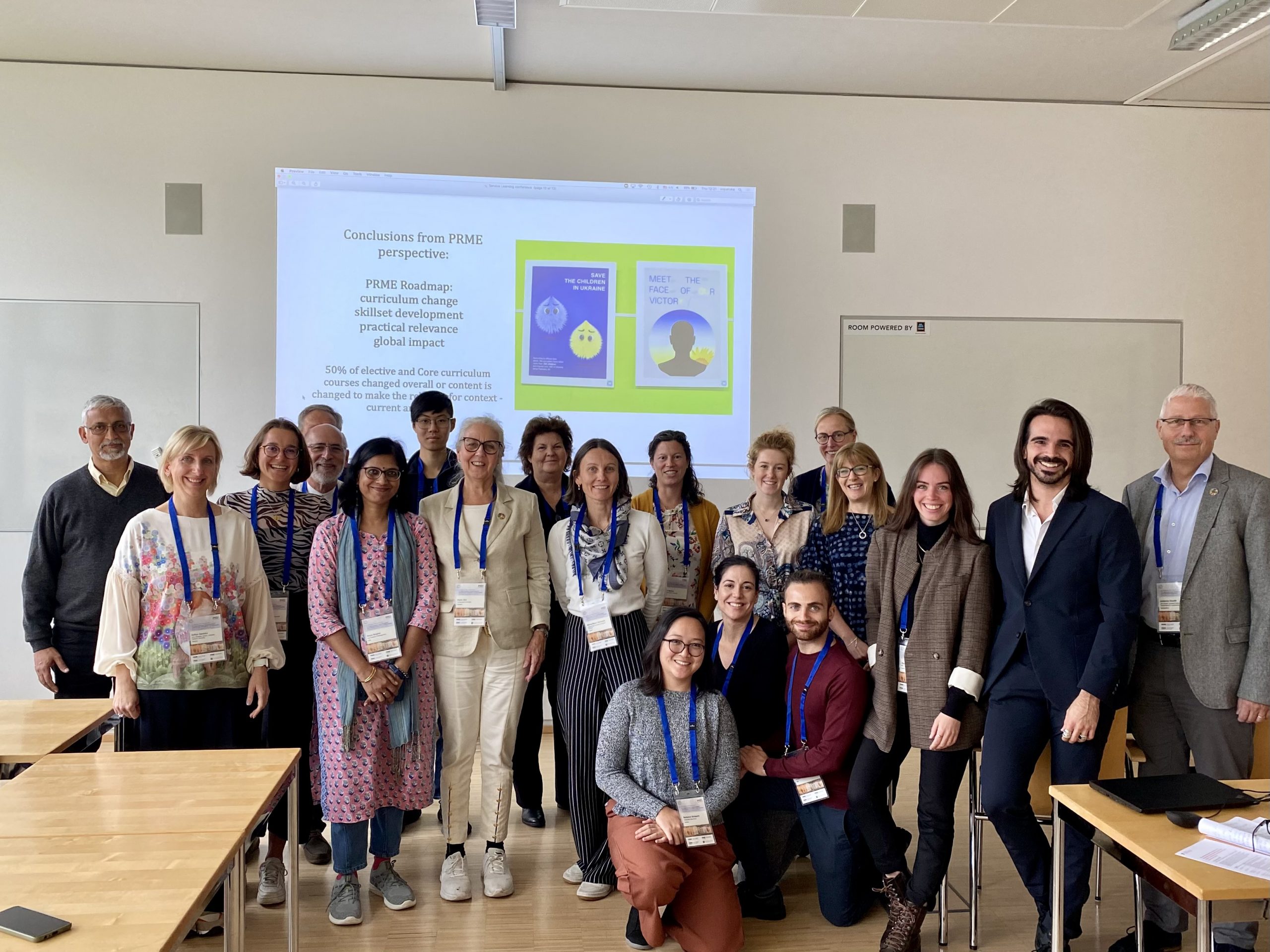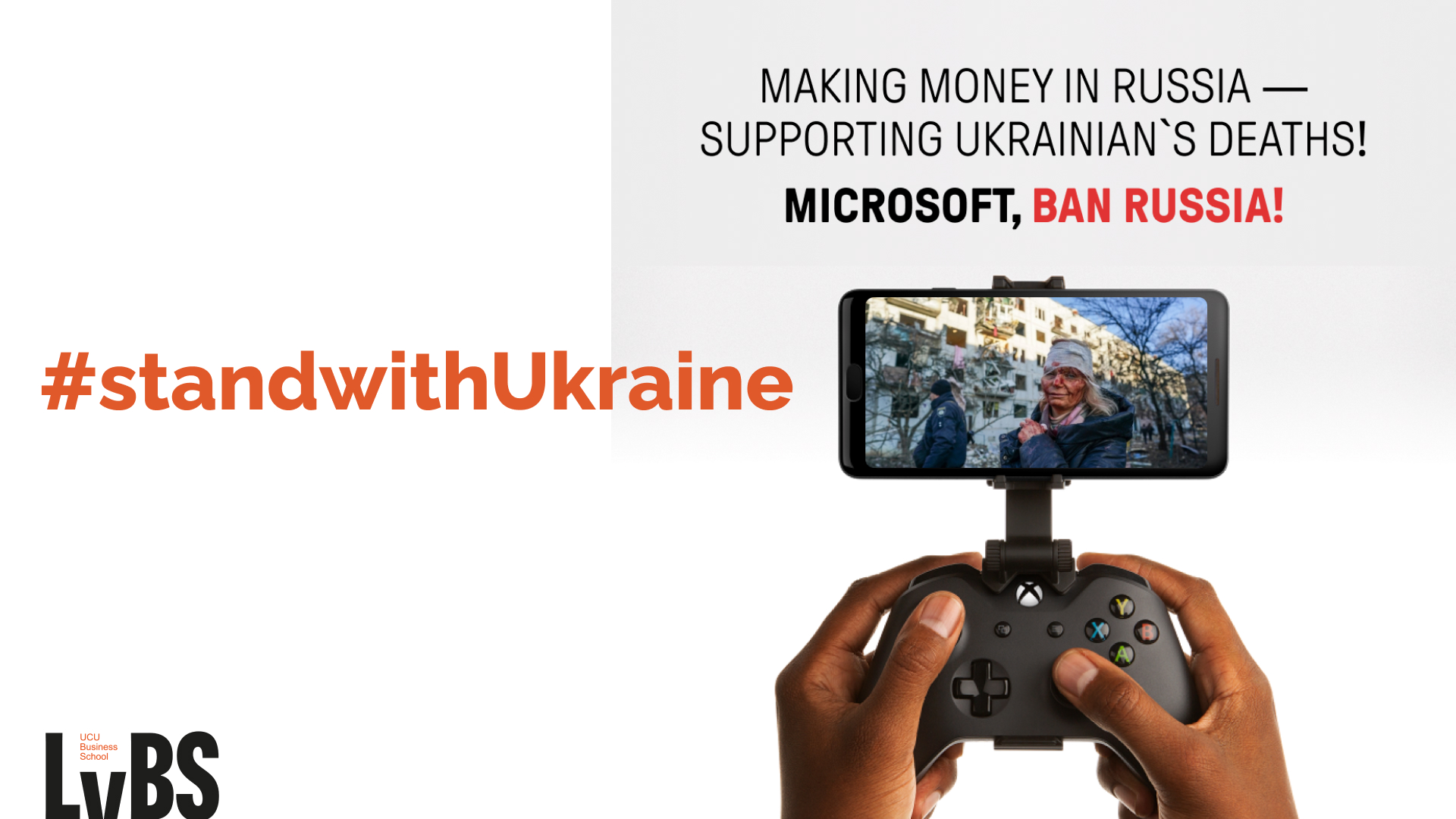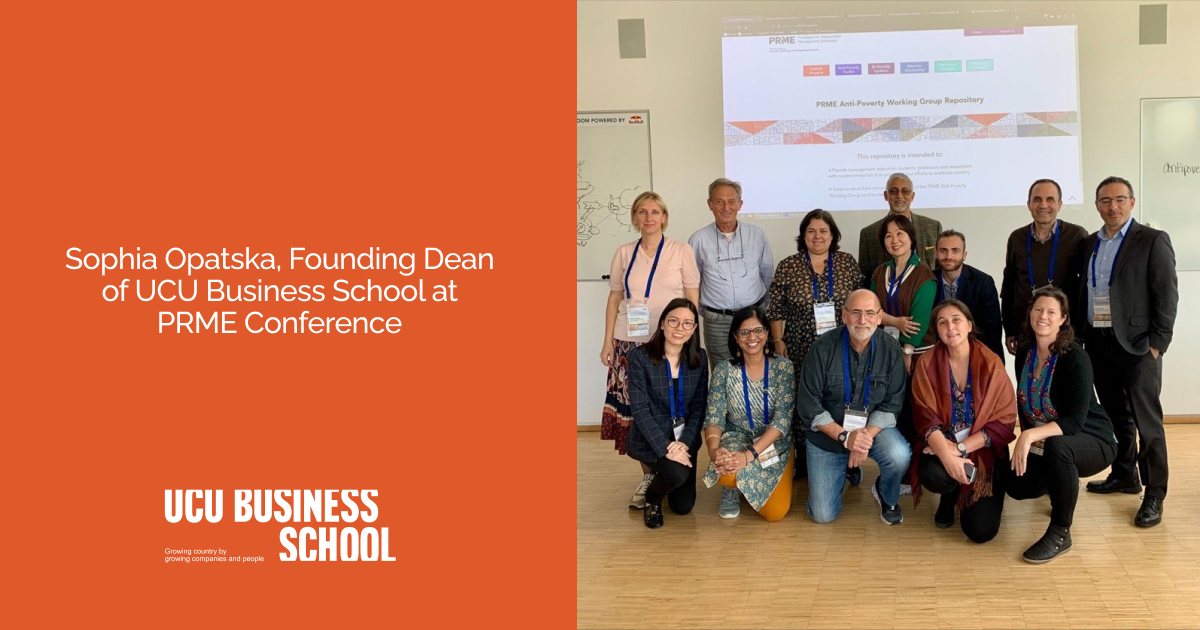The service-learning method became crucial to keep the University faculty and students together and to create an impact that was and is so important after russia started the full-scale war in Ukraine. Sophia Opatska, Founding Dean of UCU Business School and Vice-Rector for Strategic Development of Ukrainian Catholic University, shared the experience of service-learning as an instrument for learning and social impact in the time of war through the case of the Ukrainian Catholic University at 9th Responsible Management Education Research (RMER) Conference. This year, the conference gathered people from 30 countries and more than 130 participants.

There are many definitions of Service Learning described in a number of articles and books. National Society for Experiential Education defines it as “any carefully monitored service experience in which a student has intentional learning goals and reflects actively on what he or she is learning throughout the experience”.
The Corporation for National Service provides a narrower definition that sees service-learning as a “method under which students learn and develop through active participation in thoughtfully organized service experiences that meet actual community needs, that (are) integrated into student’s academic curriculum or provide structured time for (reflection, and) that enhance what is taught in school by extending student learning beyond the classroom and into the community…”
What we have experienced was a sudden and rapid increase of requests from society. The response to that request was rather intuitive than with deep research about what we should do. We did not have much time to do this.

On February 28th (the 4-th day of the war) a day before the class I made a small pole to understand where students were. If they were on campus or not. Only 9 percent were on campus. By that time a big wave of appeals to international companies leaving russian market started sporadically in the Internet and media. I guessed that if students are not on campus, they are either busy already volunteering or want to but don’t know where they can do it while still being safe.
So next day I wrote a message suggesting them 2 assignments – either to make short video appeal up to 2-3 mn or to write a letter from our students group to one of the companies (including find come contact through linkedin, official websites, somehow) and post both things on social media. Doing this will bring students points in the course (will be graded). I got a positive reaction from my students by thumbs and hearts.
I also promised to help if anyone needs help (e.g. to look through the letter before sending) but also asked students to help each other and selforganzied who is doing what and which company. By 4 pm I had the first letter addressed to Tim Cook and Apple employees (you can see it on the screen still from the chat). I also got a suggestion from one of our media students that she can make images for social media. By 8 pm still the same day we already had letters and images to Apple and Google, images to Meta, Youtube, red bull, Danone, Nestle, Chanel, Dior, McDonalds. Which I also find not only appealing but very creative and with meaning and sense in them.
Students themselves also became a distribution channel. Also official UCU and Business school channels were used. And this is how it started and lasted for the next 15 days.

What we lived through in those 2 weeks:
- Between 30 and 50 communications on an everyday basis between students in the chat. By that time my students were spread throughout Europe and Western Ukraine and I fled the country with my children. But we were together and it was very important.
- Every day we produced and shared around five letters and ten images, made 2 waves of video appeals to company leaders (most proud of our push on Coursera and Samsung). In Coursera, we had connections as educational institutions and they could push from inside. As well as Samsung. I connected with the CEO in Ukraine via Linkedin and he was very appreciative of our letter from the class since he was doing communication with the Central office, and it was one more argument.
- At some point, we realized that we needed more people to distribute them so we engaged some other students and even high school students who are active in blogging to help us. At some point, we also worked with #Boycottrussia which is rather a network of people than an organization but is very active and hashtag #boycottrussia was at some point even more popular than #standwithukraine
- On March 14th, we renewed classes at the University and on March 15th we were back in zoom as a class to reflect on our 3 weeks’ experience.
- On March 25th, I got 6 new students from Sumy State University who joined our course. Their University was in the city which suffered badly in the first weeks of the war, was almost occupied and could not resume studies like UCU. So UCU has offered support to them.
- We have been writing updates about companies leaving russian market till the end of the semester.
- As one of the assignments the end of the semester students had to describe their activities and what they have learned from them. Grading was done on learning vs. the fact of volunteering.

Students were very focused on volunteering (the idea of being useful for the country was prevailing in their thinking). After we (the management and faculty of the University) realized it is not for weeks, hopefully for months but might be for years, we understood that we have to bring them back to classrooms (physical or virtual), as their primary job in winning this war is to study and become better. Therefore, offering our students to combine volunteering and studies and suggesting assignments connected with information campaigns kept them both physically safe and in a rich learning environment.
The School of journalism at UCU had 30% of the spring curriculum in the format of service learning. Increasing information flows, lots of fake news made them integrate learning and several projects mostly focused on the international community. The Faculty of Health Science had 10 courses that integrated psychologist counseling to various groups suffering from war.
The difficult part was to calculate the beneficiaries of our projects. In some of them, we can clearly define them – like in the project for Temporarily displaced people or Phycology counseling. In some projects, there would be categories of people – children of military people, survivors of the war, or military people themselves. And some others were focused on supporting the efforts of the Ukrainian nation overall, including the course I have had.
The Strategy 2025 at our University has a slogan – University that Serves. Many people were asking us how relevant this slogan is for the University that gets the best freshman students in the country. Maybe you should focus more on their career success. We always said that we would like our students to become not only better professionals but also allow them to grow as people who live in the community, who respect human dignity, and who believe in our country. The fact that we are still there, that we teach, do active research, and learn all together, is the best witness that our choice was right.






















